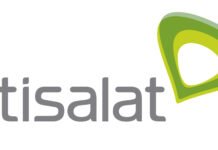In a competitive market, Google Ads could become either a potent growth driver or a money-draining pit depending on how well the campaign is optimized. Many businesses operating in Dubai encounter the issues of high competition, high advertising expenses, and not getting exponential growth. This is where a PPC Agency in Dubai can prove invaluable. Many businesses improve their daily spending and achieve a significant ROI with an effective strategy based on consumer interest aligned with products. So it is essential for any marketer or a digital marketing agency Dubai to learn how to avoid overspending to experience growth in a highly variable market.
This article explains the most impactful reasons why your Google Ads budget may not be managed effectively, as well as offering practical tips that will help in Google Ads optimization.
Common Reason Google Ads Budget Drain Faster
These are the key areas businesses fail to manage with their Google Ads budget:
- Using broad and generic targeted keywords that results in generic advertisement clicks.
- Not doing targeted audience segmentation can lead to the same ad being served to different people, hence capturing irrelevant clicks.
- Bidding without a planned and well-thought strategy will only lead businesses into overspending with very little value to return.
- No negative keywords: Your advertisement may show up for completely unrelated searches without some form of exclusion.
- Poor ad relevance and low quality scores: This increases the cost-per-click while decreasing visibility.
- Not tracking conversions: Your optimization efforts get misdirected when too much focus is placed on clicks instead of real actions.
Understanding these issues is the initial step to conduct ad spend analysis and building a strategy for low ROAS solutions.
Establish Campaign Objectives and Key Performance Indicators (KPIs)
Every ad campaign requires a clear objective to define its success. Whether to generate leads, increase sales, or direct traffic to a landing page, goals need to be defined. Here’s how to set KPIs to avoid PPC budget wastage:
Choose a campaign type: Search, Display, Shopping, or Video. Ensure they align with your business model.
Define KPIs: Lead costs, ROAS, conversion rate, and CTR.
Utilize SMART goals: Specific, Measurable, Achievable, Relevant, and Time-bound (SMART) goals are easier to optimize.
While setting up clear KPIs is crucial, not having defined benchmarks makes tracking progress or halting overspending near impossible.
Focus on the Proper Audience
Targeting the wrong customer base wastes your budget. You can use the following methods to improve your targeting:
Location targeting: Focus on areas your services are accessible or where they would provide a profit.
Demographic targeting: Aged and Gendered, household income, and other such categories.
In-Market And Affinity Audiences: Google allows reaching out to people who are looking at or are interested in your services.
Custom Audiences: Analyze your CRM’s custom audiences or visitors and retarget them.
Avoid Using Too Many Keywords
Negative Keywords, though rarely used, are very important to Google Ads. Ads would be displayed to people searching for unrelated or low selling products and services.
Here is how to use them effectively in an ad campaign:
- Make sure that you are checking the report on a regular basis, so that you do not miss out on irrelevant queries.
- Make sure to avoid using the terms such as “Free”, “cheap”, “jobs,” or “How to”, and the other such terms that make your ad cheaper.
- You have better control on the campaign and ad group if you create the negative keywords at those levels.
This guarantees your budget is focused on spending on traffic that is likely to give a positive return on investment.
Optimize Ad Copy and Extensions
As your advertisement copy influences the qualified clicks that you get, you should check that it is fully optimized. Irrelevant ad messages reduce the CTR and level of your quality score.
To optimize an ad copy and increase ad ROI, consider these things;
- Add primary keywords to the headings and provide descriptions.
- Powerful CTAs that trigger users to make an action. Some of the strong CTAs are “Book a Free Quote” and “Contact Us Today”
- Make multiple ads and run an A/B testing to find which ad best resonates with the audience.
- Lastly, add extensions like site links, callouts and structured snippets to improve the real estate and visibility of the ad on the search page.
With reduced cost, get better qualified traffic, greater ad engagement, more conversions, and a greater return on investment.
Monitor and Adjust Bidding Strategies
Google Ads is a commonly used platform that has various bidding strategies of which not all suit the goals you have set for your campaign. These strategies can become a problem to your budget when they are set to automatic, especially when set to a mode that you have not fully clarified the structure of your advertisement.
Some tips to optimize PPC bidding strategy includes;
- When you are starting, set the campaign to manual CPC.
- Once you have enough data to rely on, switch to automatic bidding and use target CPA.
- Use bid adjustments on devices, location, time of the day, day, and audience to better spend your budget.
- Keep an eye on average CPC and position to reduce cost per click.
Monitor your campaign regularly and undergo necessary changes based on competition and profitability.
Monitor Conversions Instead of Clicks
Payments for services by the advertisers would only be justified if the clicks are transformed into conversions. Actual conversions as a lead form submission, purchase, phone calls, and bookings are important to determine the campaign’s real value.
Best practices for campaign performance tracking include:
- Make sure to install Google Ads conversion tracking code to your site or to the designed thank you page.
- Google Tag Manager helps with control and integration, taking it a step further.
- Create goals on Google Analytics and bring them into Google Ads.
- Pay attention to micro-conversions that form part of the funnel like button clicks or video plays.
Conclusion
Preventing Google Ad budget from draining is not a game of luck, but it needs a wise calculation and analysis of campaign setting. It includes factors like bid optimization, tracking conversions and regular refining of audience targeting. By focusing on these areas the ad spend will result in higher ROI. As it’s a wholesome approach you may feel overwhelmed with your budget targeting, a professional assistance from a skilled team at DigitalSetGo will be a game changer. As a top AdWords consultant in UAE, they helped multiple businesses across the region. Whether you are launching ads or looking to scale results, their technical expertise and relevant local market knowledge is incredible.





![How to Check Your Lulu Balance: Complete Guide [2024] How to Check Your Lulu Balance](https://khaleejtip.com/wp-content/uploads/2024/11/unnamed-150x150.png)



